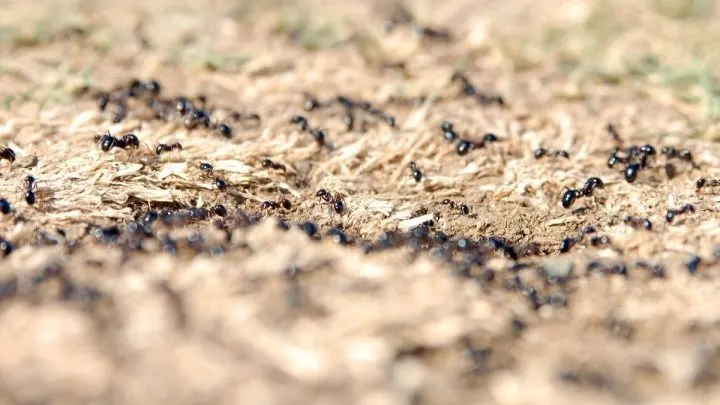In today’s article, we will tell you how to stop ants nesting in plant pots, or rather, 17 ways to do it. If this is happening to your houseplants in the near future, you will definitely want to read the rest of this article.
If you have a single ant in your house, whether it’s on your table, in your fruit bowl, or in your plant’s pot, I’m sorry to tell you this, but it’s not alone.
You will never have just one insect or ant in your house, if there is one there, behind, next to, or somewhere nearby there is a whole colony of these little pests that can really destroy your plant.
They do it slowly, imperceptibly, their black camouflage color gives them a real advantage when hiding on the ground, but react as soon as you notice them.
Let’s find out 17 ways to stop ants from nesting in your pots.
Why Ants Nest In Plant Pot And How To Stop Ants Nesting In Plant Pots?
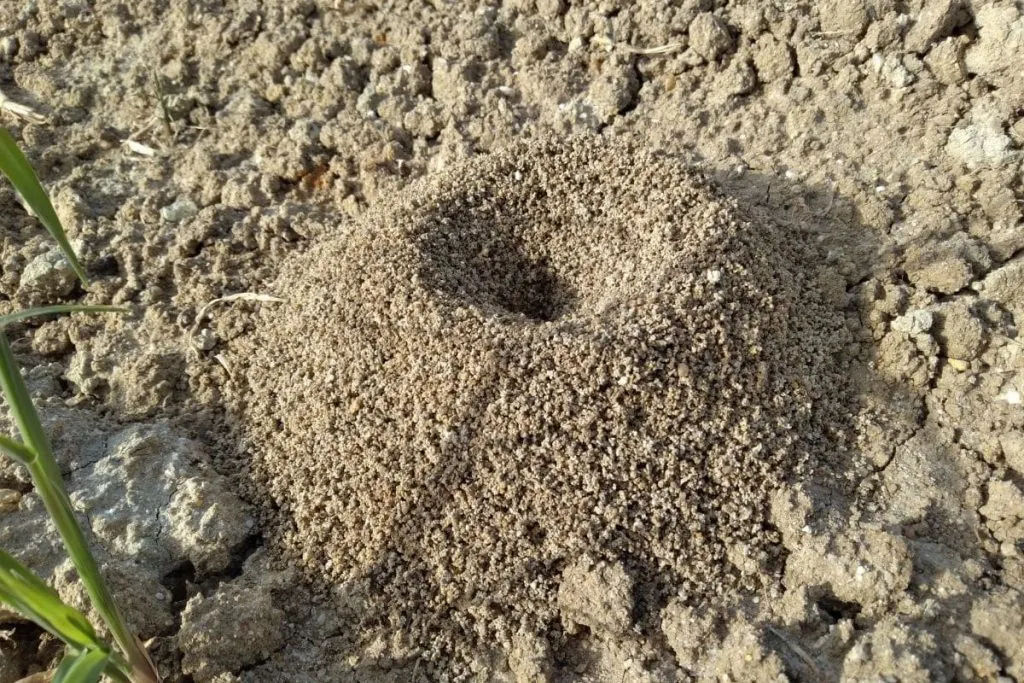
This issue has many reasons behind it. Some of those reasons are the presence of honeydew in your plant’s dry soil, aphids, and mealybugs that are also present in the soil.
Ants aerate the soil when they’re traveling through it and they build tunnels in your plant’s soil that mostly carry nutrients and oxygen from the roots.
Sometimes water as well. Of course, if the tunnels carry it we can conclude that it’s immediately a lack of those things in its roots. Sometimes, they do good things such as faster decomposition of insects which can help in the fertilization of your plant.
But based on bad reasons alert again, they can spread to your plant’s leaves, and once they stay there that can be really based for your plants. How to spot that you’re wondering? Not just one, we’re offering you 17 ways to stop ants from nesting in your plant’s pots. Let’s learn all about it below in detail.
17 Ways On How To Stop Ants Nesting In Plant Pots!
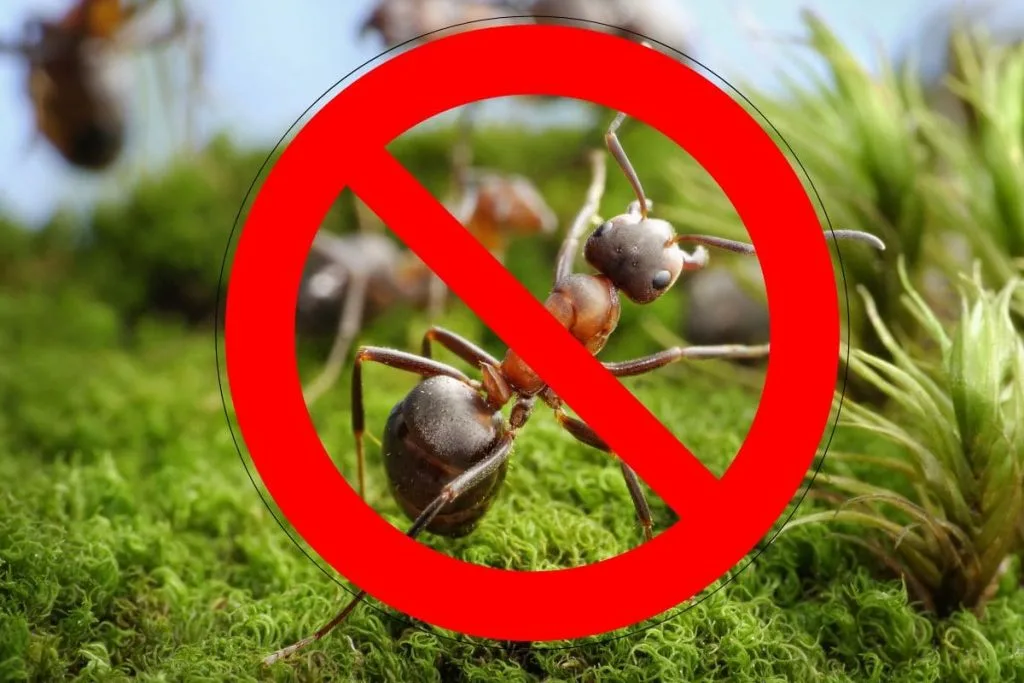
And there it is, container plants attract beneficial insects and along with them, ants nests showed up as well. Pot plants are like a battlefield of tens of insects, diseases, and pests. If it’s not pest insects then it’s ant infestation.
Destructive insects just keep occupying your pot and you want to fix it as soon as possible. Well, that is great because today we’ll help you today how to do so.
Let’s learn 17 easy ways to stop ants from nesting in pots that you can basically buy in a garden supply store or you already have at your home.
1. Commercial Bait To Save Your Potted Plants From Ants
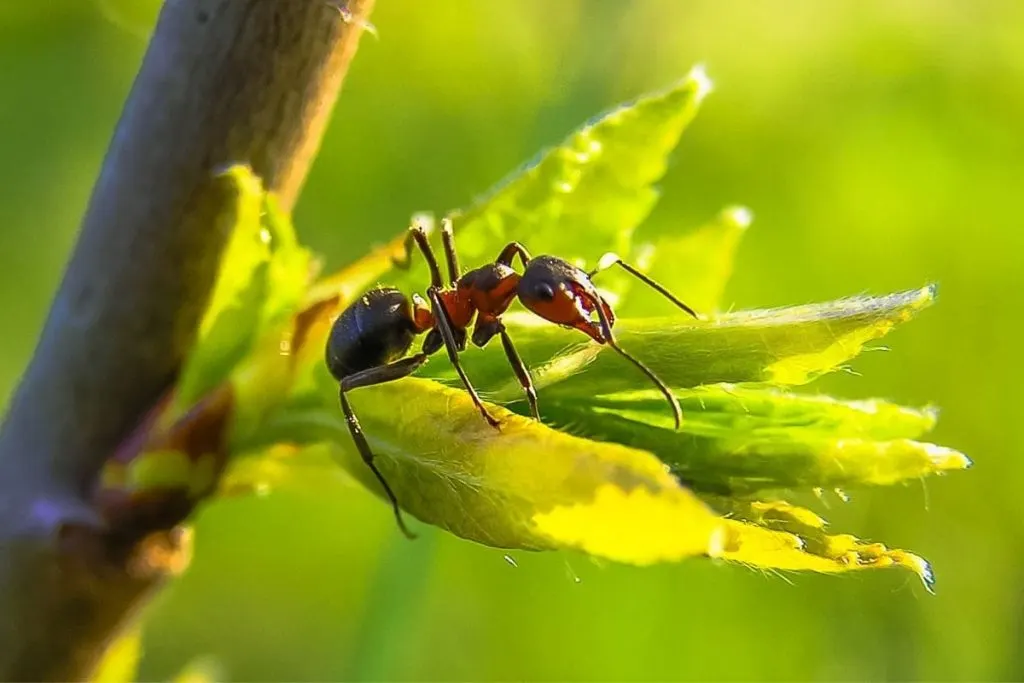
If you want to react quickly and make sure they’re gone immediately after you react, buy a commercial bait or spray to prevent ants from nesting in the soil anymore.
When you’re buying these things you have to check a couple of things to know and make sure it will be effective: the price of the commercial bait, quality, and composition of the bait you bought because you don’t want too many chemicals in it that can damage your plant even more.
The thing you also need to worry about is your pets and kids (in case you have kids or pets). Both pets and kids just love the soil. they love taking it out of its pot, they love digging it, kids even it right?
Due to the chemicals in the pot, you have to watch out! They are poisonous and toxic and they are harmful! However, they are able to kill the ant colony before you blink!
2. Use Insecticidal Soap To Control Ant Problem In Your Potted Plant
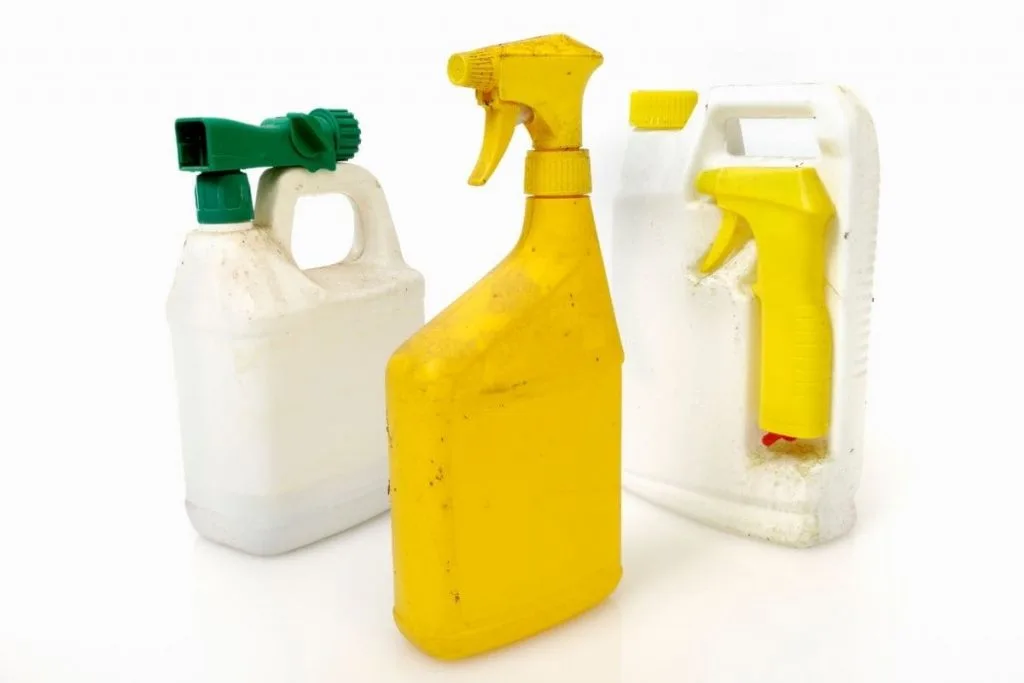
This is one of the classic pest preventers. Even when the issue is bigger and you notice white ant eggs in your flower pot, for killing ants-insecticidal soap. Once you notice white ant eggs it means that your plant container will soon enough be full of them.
The queen is there and she’s nesting. Fill the plant container inside with insecticidal soap and this will be great for the worker ants that are constantly moving. Insecticidal soap works a bit harder on fire ants species that can be found in the desert since we all know how dangerous and serious they are.
But for regular house ants, it works great. Chemicals that insecticidal soap is consisted of will kill the ants and won’t damage your plant (of course if you think about the amount carefully).
So, what does this soap do? It washes away the protective coating from their bodies and that will eventually kill them. Voila, just like that, bye-bye ant problem.
3. Chemical Pesticides Can Help Deter Ants Too
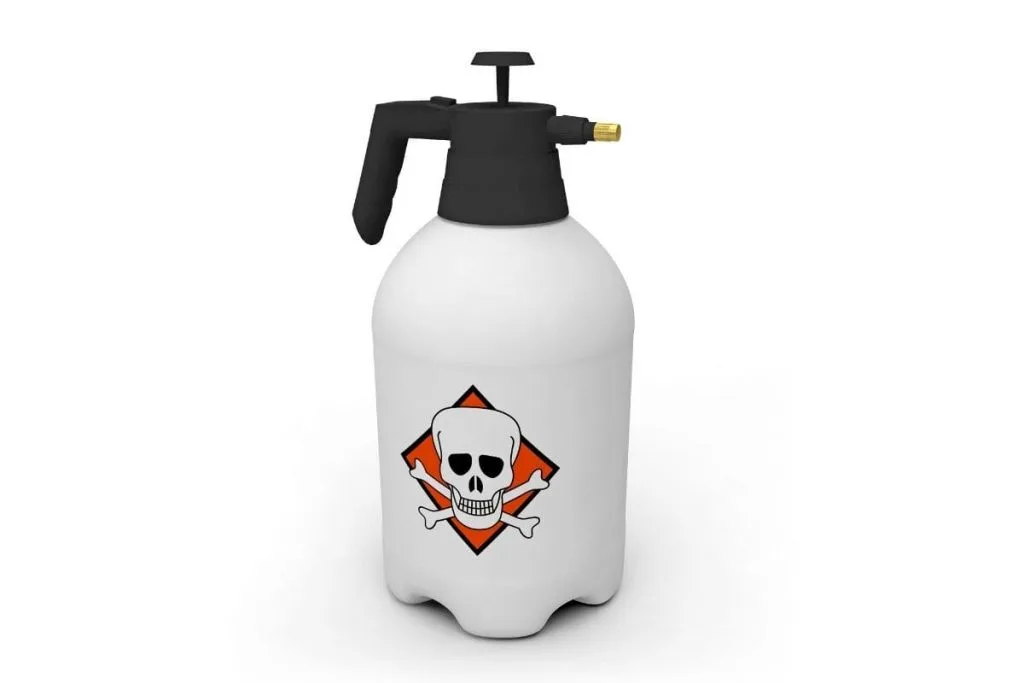
Chemical pesticides are essentially playing with fire when dealing with pest problems on your plant. They can sometimes do more harm than good and that is what is dangerous when using them.
You always have to check the percentage of chemicals that are in them, which of those chemicals are the most harmful to your plant, which ones your plant cannot tolerate, etc.
If you overdo the percentage of pesticides, your plant can die in just a few days. Because of the ants, but also because of the plant.
Of course, you don’t want that and always read the composition, and warnings and consult with the gardener.
Pesticides are essentially a milder form of poison that will kill ants immediately. After the pesticides, they will not be able to eat or drink and will just die.
4. Pyrethrum Spray For Ants And Other Pests As Well
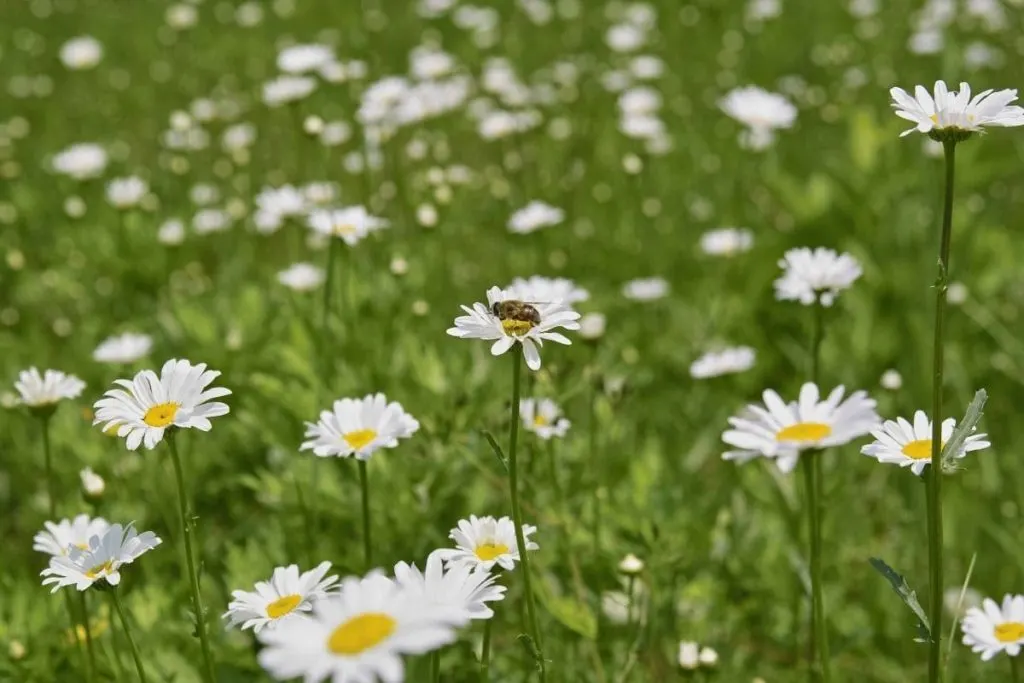
This one you’ll love because of its fast effect. Similar to pesticides, pyrethrum spray affects the ant’s nervous system, paralyzing thus leading to its death. You’ll notice soon an entire colony of dead ants in your plant pot, but they’ll be gone.
Tunnels are gone, but after this, your plant will still lack some nutrients from its soil and fertilizer. After this treatment, it would still be a good idea to transplant your plant into a new well-drained fertilized soil that will help your plant to recover.
5. Use Peppermint Oil To Kill Ants In Potted Plants
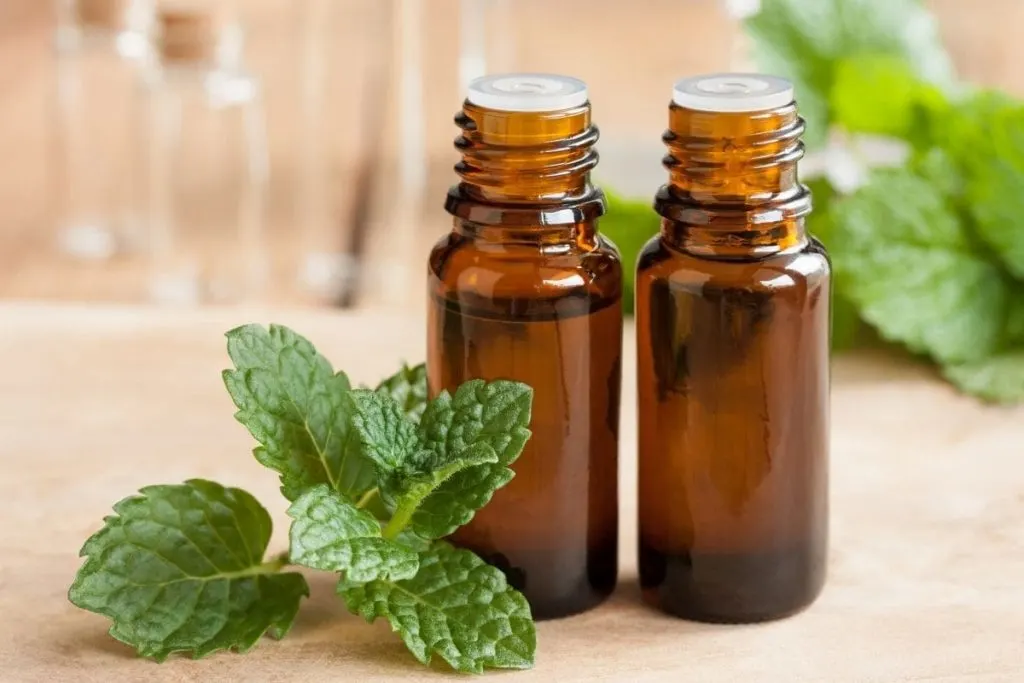
One of the smells that ants absolutely cannot stand is definitely peppermint oil. They simply hate them! They are too strong and have too strong an intoxicating smell that ants simply cannot stand.
This is very much in your favor. Some people when making a spray to kill ants use this to mix mint oil with water, but if you want a better and stronger effect then leave your essential oil as it is.
If you personally cannot stand the smell of mint, then you can dilute it, why not? The terpenes and menthol found in this oil are excellent repellers for ants and many other pests.
6. If You Find Ants Fix The Issue With Essential Oils
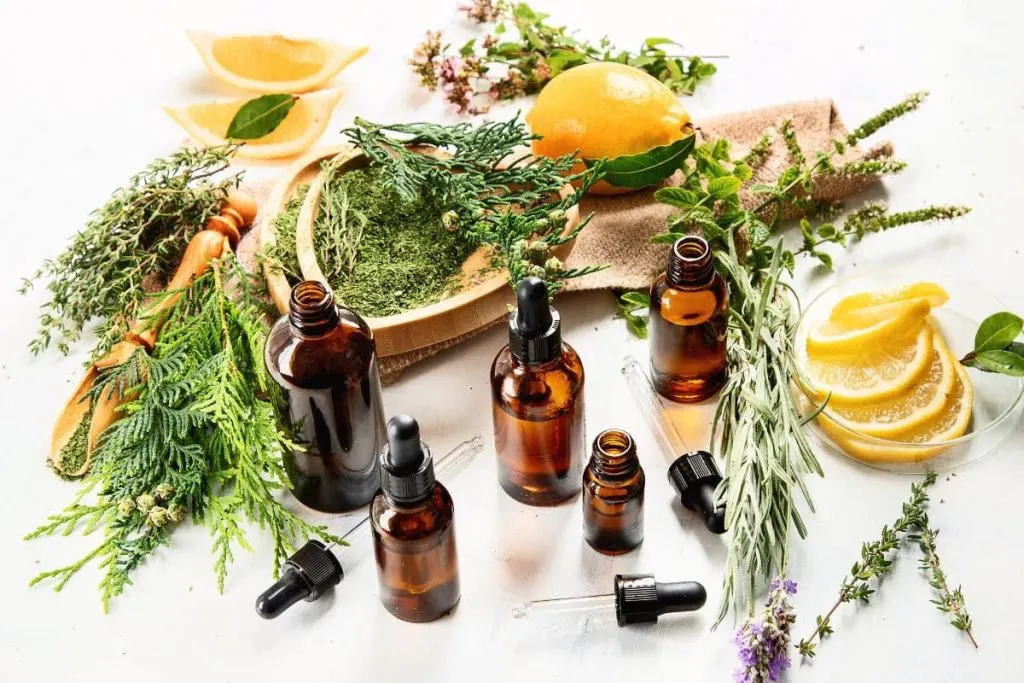
In addition to peppermint oil, you can also use other ethereal and essential oils to kill ants in pots. You can use citrus oils for this, i.e. citrus and lemon, clove, you can also use these essential oils mixed with ginger because ants don’t like that either.
It is always good to check their composition because you can find in their composition what bothers ants. Also, the advantage of essential oils is their stickiness, which will also make it difficult for them to move in your pot throughout the process. Other scents you can use are eucalyptus, lavender, and similar scents.
7. How To Stop Ants Nesting In Plant Pots – New Potting Mix
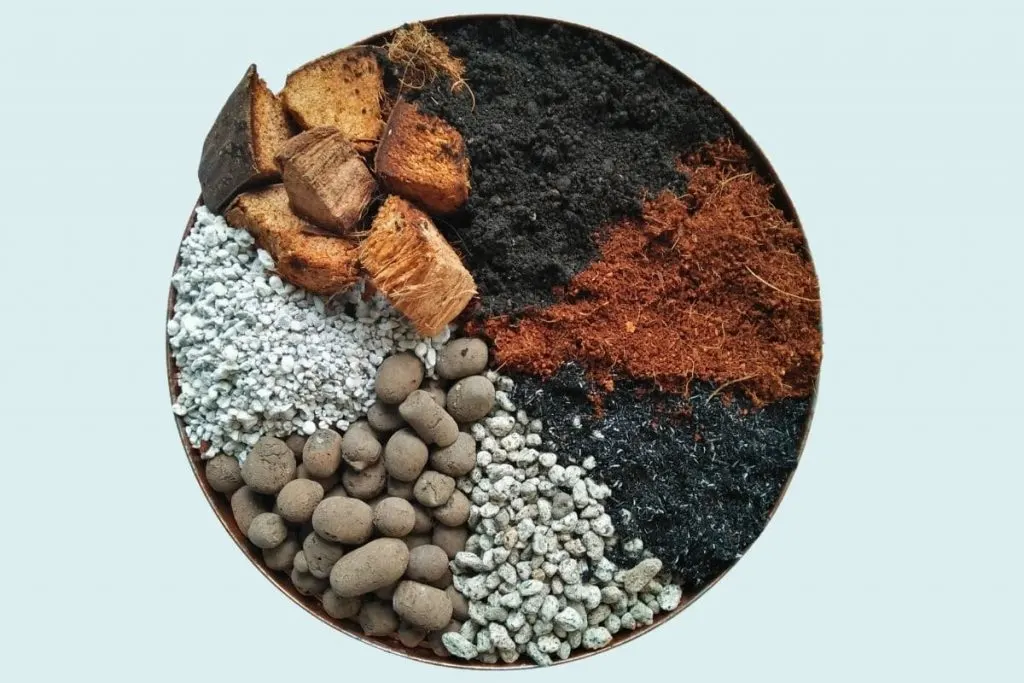
This is perhaps one of the easiest ways to get rid of ants. A person who loves plants and has several plants in their apartment or on the balcony will certainly have “soil supplies” on the terrace in case they need them or if they plan to buy a new plant soon.
And what’s easier than simply moving your plant to a new pot with fresh soil? When you prepare the new soil, drain it well depending on the type of plant, and add fertilizer because nutrients are quite important for a plant suffering from ants.
That’s it. However, you are still not sure where the ants in your apartment are coming from, so put some scents or traps on all possible openings in your apartment where they could enter your apartment.
This is also a good solution when you have white fungus balls in the soil.
8. How To Stop Ants Nesting In Plant Pots – Apply Diatomaceous Earth
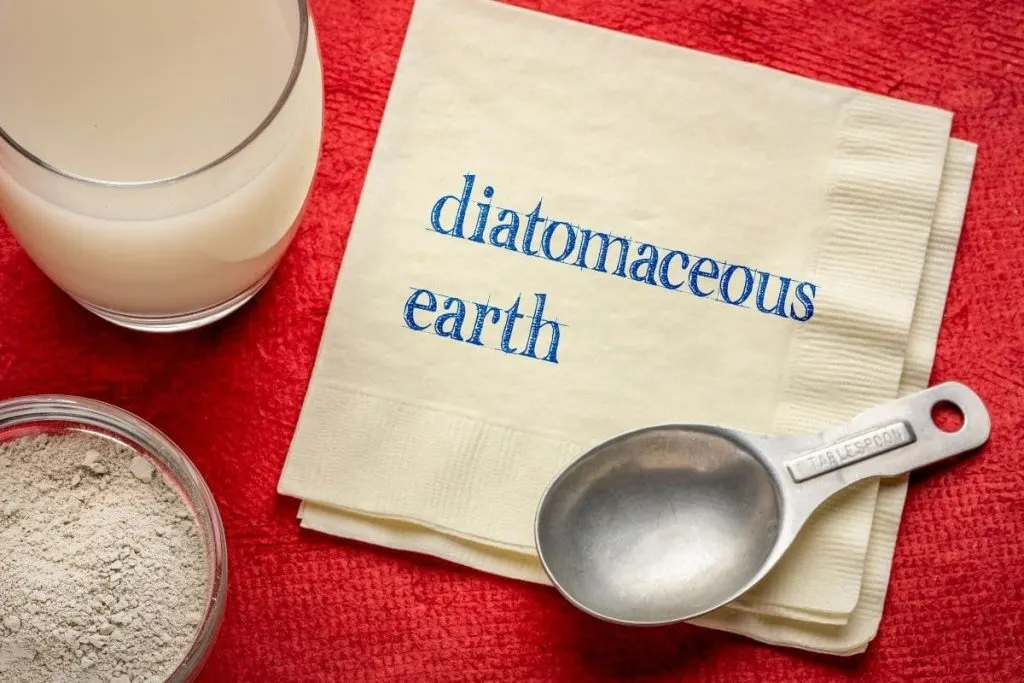
Diatomaceous earth is a type of soil made from sea fossils. Their purpose is that they basically dehydrate pests’ bodies and of course, bodies that are dehydrated will eventually die.
If you’re not sure how to use this type of soil on an ant-infested plant, here’s how to do it: Sprinkle a surface inch or two of this type of soil. Ants will come to the surface of your soil at some point and that’s all they have to do.
The soil will dehydrate their bodies on the first encounter and soon, in such a state, the entire colony of ants in your pot will be dead. But, since the plant soaks everything around it, make sure you move diatomaceous earth from the pot after you’re done with the plants.
9. Sprinkling Coffee Grounds And No More “Ants Love” For Your Plants
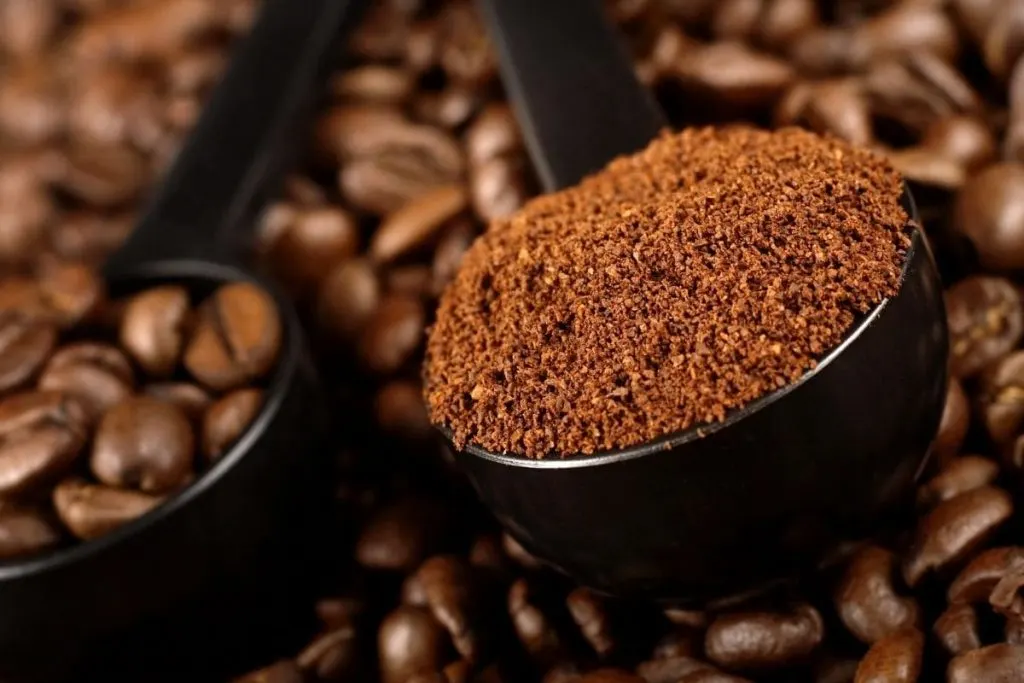
This is a good repeller for worker ants since they lose their scent trails. You can either use a small spray bottle that is filled with water and coffee grounds or you can just apply coffee grounds on your own. It will stop ants from moving through the tunnels.
However, this why isn’t so sure either. Sometimes, they will literally go around since they can recognize the smell and simply won’t go there. The solution barely covers half of the colony, but if you have smaller ants issues, you can test this way as well.
10. Baking Soda For Ants Affected Plants
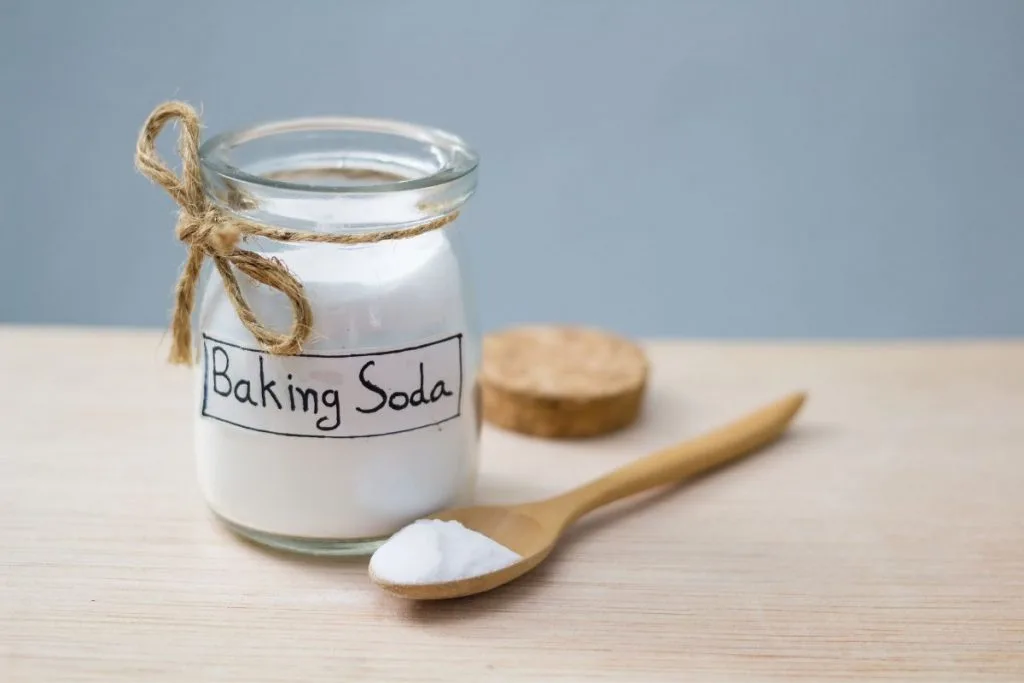
Similar to concentrated insecticidal soap baking soda will definitely kill the ants. Baking soda works by covering the first inch or two of your soil with baking soda. After you do that, in half an hour, an hour, the ants will come into contact with it.
Then what you’ve been waiting for happens. Baking soda comes into contact with ants, they often swallow it and taste it because baking soda does not have a very specific smell that is repulsive.
When baking soda enters their digestive system, a problem arises. We are all familiar with formic acid. It is precisely this acid that creates the problem, mixed with baking soda it creates a reaction that literally explodes the ants.
11. Black Pepper To Scare The Ants Away
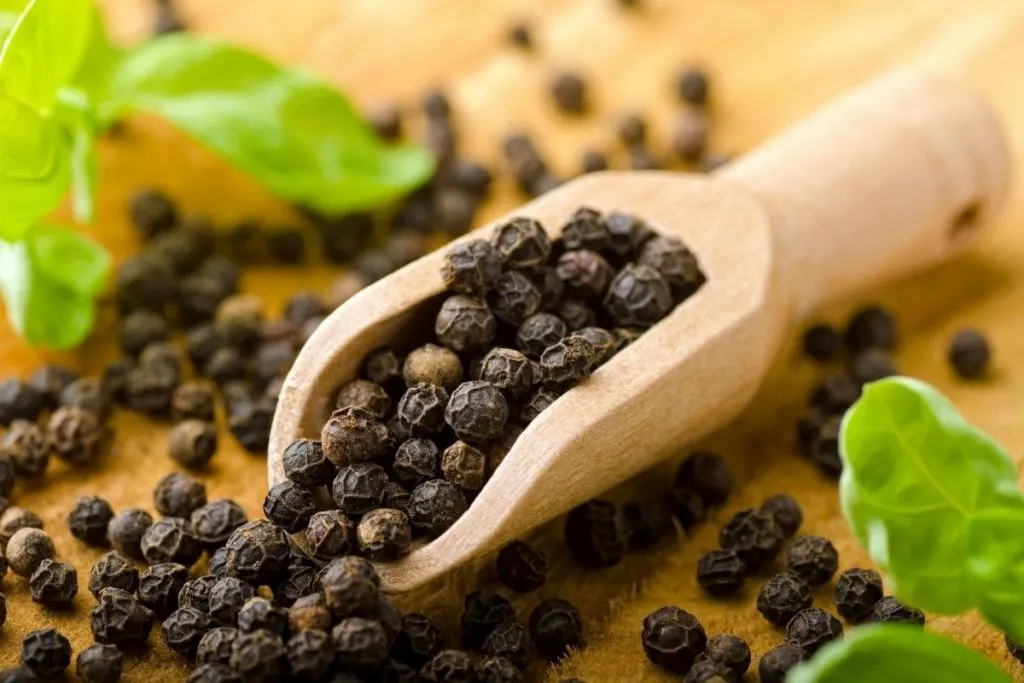
Speaking of black pepper, when you use it to repel ants from your pots, nothing dramatic will happen like with baking soda. It’s simply its smell that ants can’t stand at all.
Ants will not even come close to where there is black or any pepper, in fact, they hate its smell and will stay as far away from that place as possible.
What you can do is sprinkle the entire surface with pepper and you don’t have to worry about it damaging your plant further. You don’t even have to remove it afterward from the pot. Most pests don’t like that smell, so they can stay there for prevention.
12. White Vinegar To Stop the Ant Colony
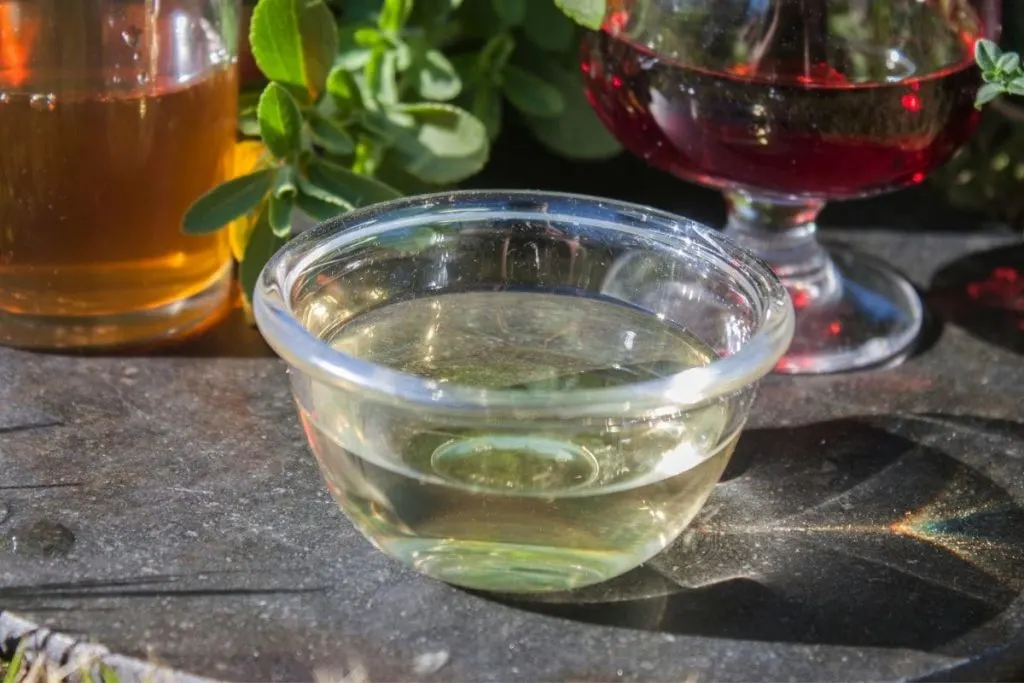
This is also a very interesting way to get rid of ants. It’s not as simple as black pepper, but it’s not as dramatic as baking soda. When you sprinkle the soil with vinegar pheromones that are in it, it will make the ants get lost.
It will affect their nervous system, first, they will wander aimlessly in your soil not knowing what they are looking for, most of them leave immediately, and sometimes they die right there in your pot.
Ants are not stupid animals, they will simply leave the scene of the crime in flower pots and that will be the end of suffering for your plant.
13. Garlic To Stop Ants From Nesting
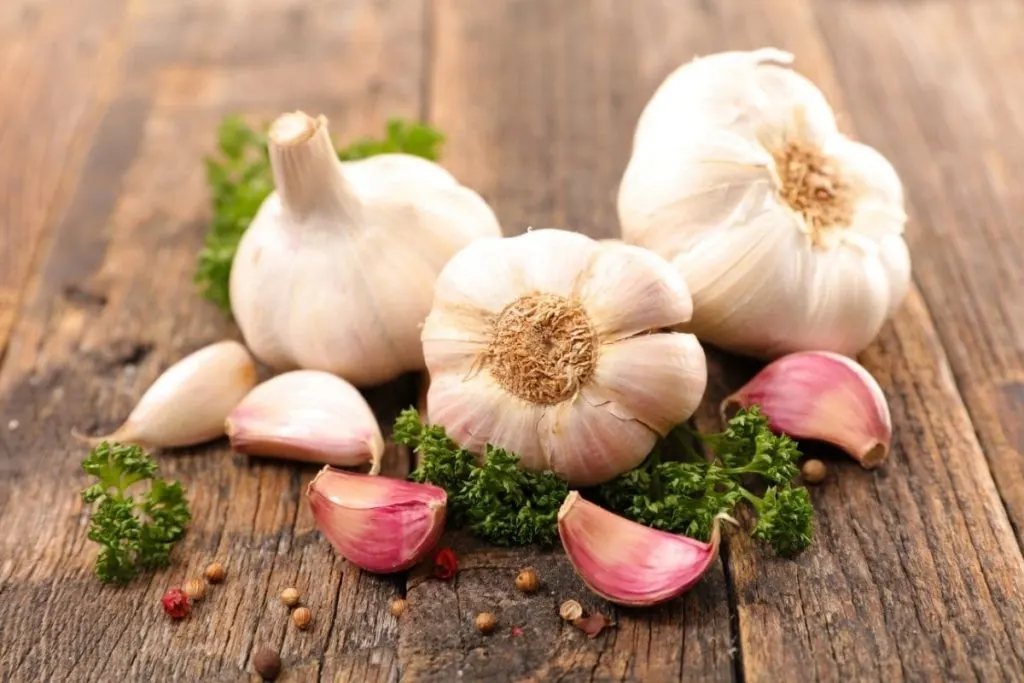
Just like pepper and essential oils, garlic is simply an odor that is repulsive, realistically, to all of us, not just pests.
If they use garlic powder, for example, mixed with water because it’s so easy to spray, or just garlic powder, simply sprinkle it on top of the soil and trust me, the ants will leave with their heads regardless and won’t return to your pot.
14. Get An Ant Bait And Say Bye Bye To Ant Nest
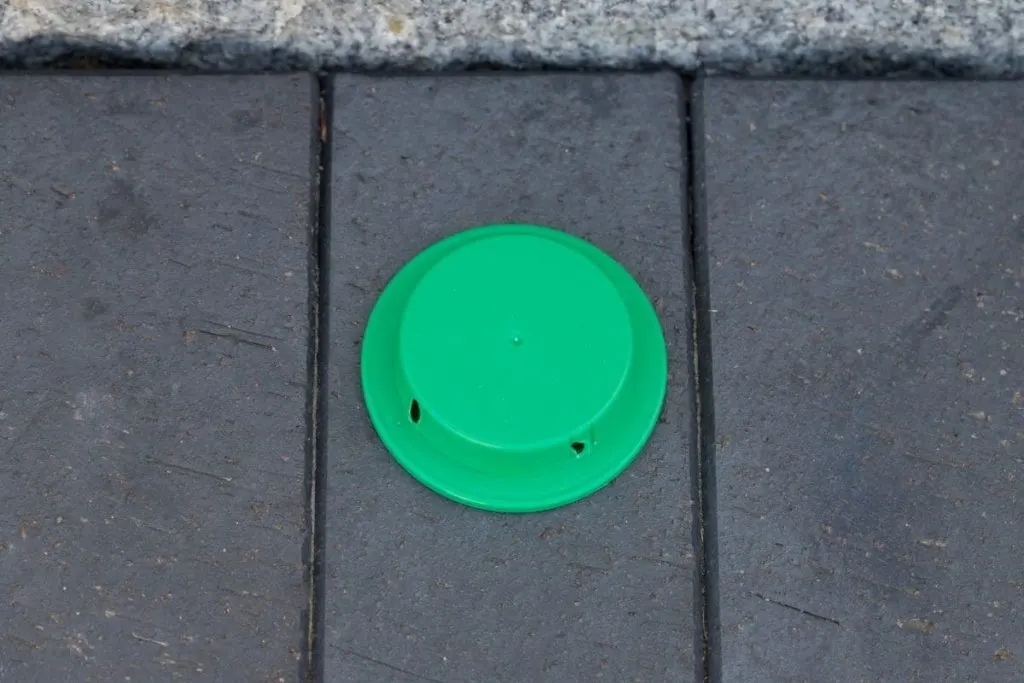
Liquid Ant Bait is definitely the bait you want for ants. They are sticky and wet, and what is in their composition is borax, a chemical that ants do not like at all and which is deadly to them.
They usually come in the form of small white machines, i.e. devices that you simply put in your pot. It’s not repulsive looking, it’s just a piece of plastic that looks like a scaled-down version of a humidifier, only it contains toxic substances.
Put it in a pot and the moment a curious ant enters that device through its cavities, it will remain stuck there, and the chemicals will soon kill it.
15. Cinnamon To Stop Ants Crawling In Pots
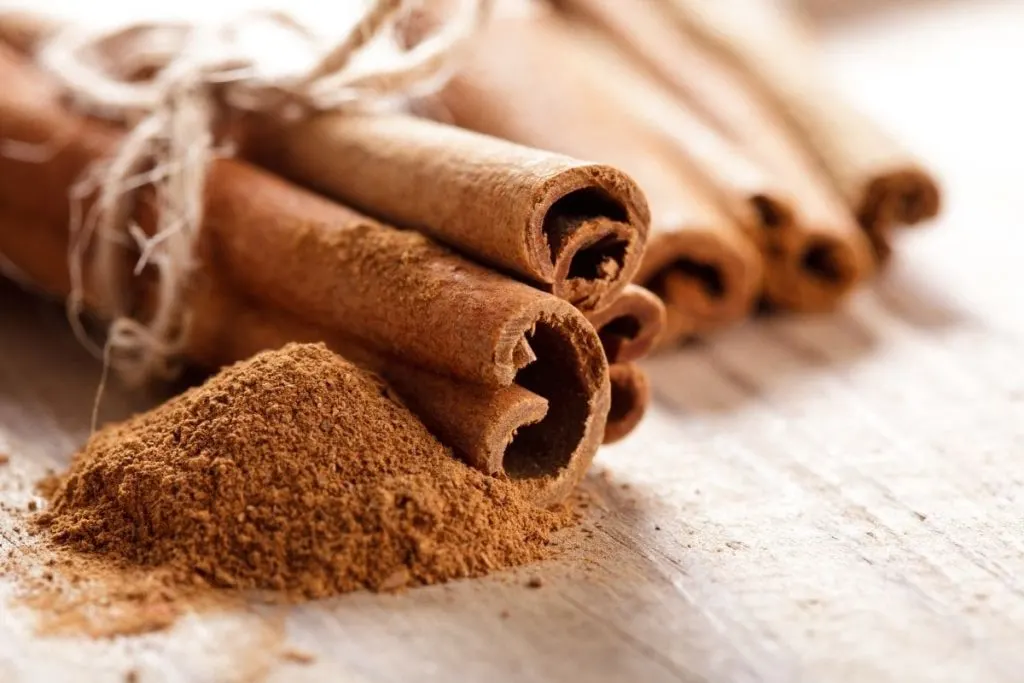
What we all love in the scents of candles, perfumes, essential oils, and even Christmas cakes, ants despise! Cinnamon is definitely a scent that will drive ants away from your plant.
If you have cinnamon left over from the cake or you have essential oil with this scent, run for it and pour it into your flower pot.
If an ant swallows and comes into contact with cinnamon, it is very likely that it will suffocate and die. A very unusual way to kill ants, but tried and tested.
16. Mint Leaves As A Repeller Of The Entire Ant Colony
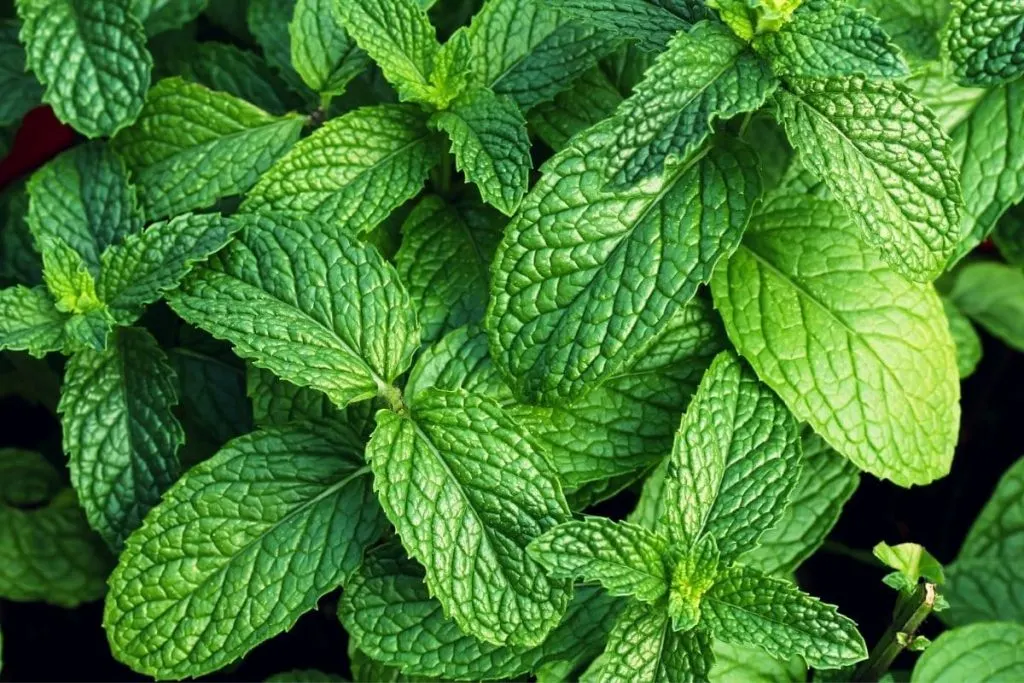
Above we talked about essential oils that contain peppermint, but something else you can try is actually actual mint leaves.
It will give your apartment a good aroma, it will blend in with the appearance of your plant and it will not be offensive at all, and it will repel ants away from your pot.
Ants really hate this smell and won’t go back there. Even after you remove the leaves, the ants can still smell the scent retained on the soil granules.
17. Cayenne Kills Ants – Natural Ant Baits
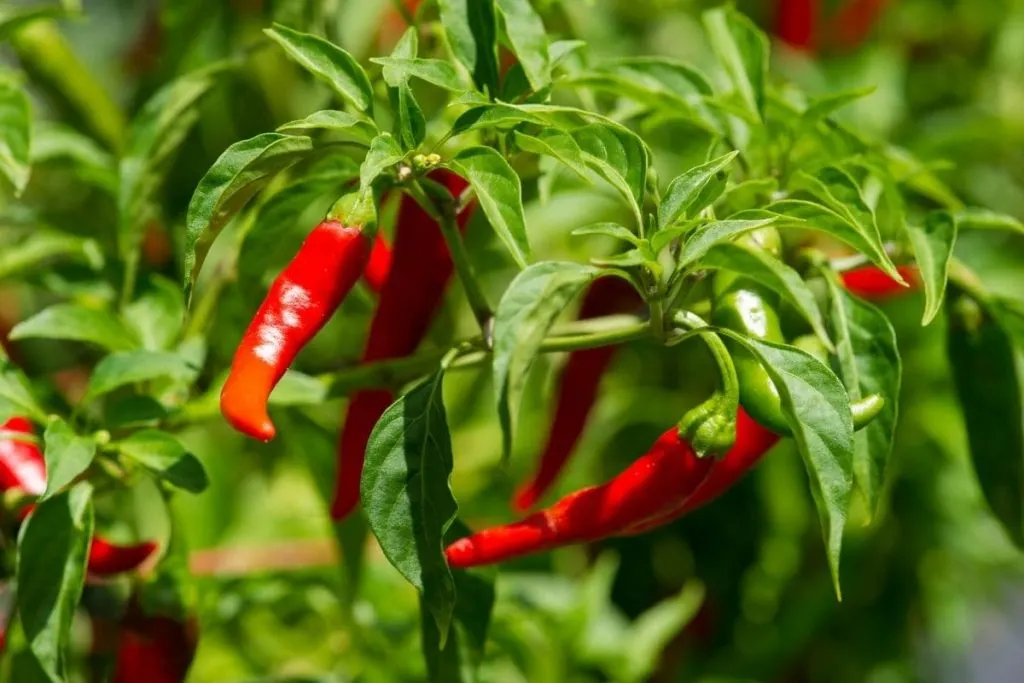
The spicy, strong scent of cayenne is something that ants hate, just like black pepper. It comes in powder, and spray, and you can even use cayenne fruits, but in such a way that you cut them so that the juice flows out of them and is more “accessible” to eager ants.
It is precisely because of the smell that ants will not graze the soil and plants that smell like cayenne. Some pepper sprays actually contain this so if you have one in your purse use it to spray the soil with it.
How To Stop Ants Nesting In Plant Pots: FAQ

As always, we make sure that in one article you get answers to all the questions you have, even potential and unexpected ones.
That’s how we made sure that today after this article you don’t have any further need to search for certain questions and answers.
Today you will find out all the answers to the questions about how to prevent ants from nesting in plant pots. Let’s find out some more information below.
What Damage Ants Do To The Plants In The Pots?
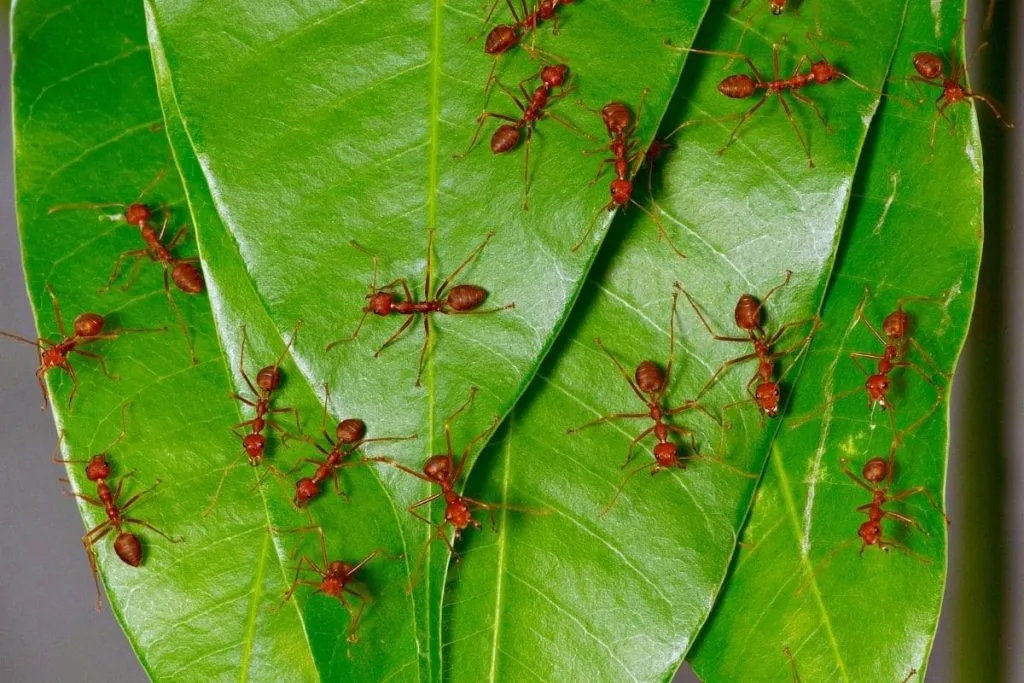
We have already superficially mentioned what happens to a plant in the soil from which ants are born.
The first thing is that ants reproduce at the speed of light. It will be really difficult to keep track of their number because one moment you have 10, the next 100.
Their movements through the soil of your plant disturb the soil itself, too much movement under your plant can harm its roots of it. Ants also draw the necessary nutrients for plant growth from their soil, fertilizers in the soil, and possibly roots.
They also take water. We mentioned that sometimes it can be good for plants, in cases where they carry away the dead bodies of other insects and leave behind their remains of them, creating humus. But that is a rare case.
Sometimes it will spread to the stem of your plant from where it will draw additional liquid and nutrients and possibly to the leaves because they are the only ones left.
Black ants do less damage than fire ants. Fire ants are terrible pests that cause enormous damage and are much more difficult to get rid of. Plus they are very poisonous and dangerous for your household.
Are Ants More Common In Indoor Or Outdoor Pots?
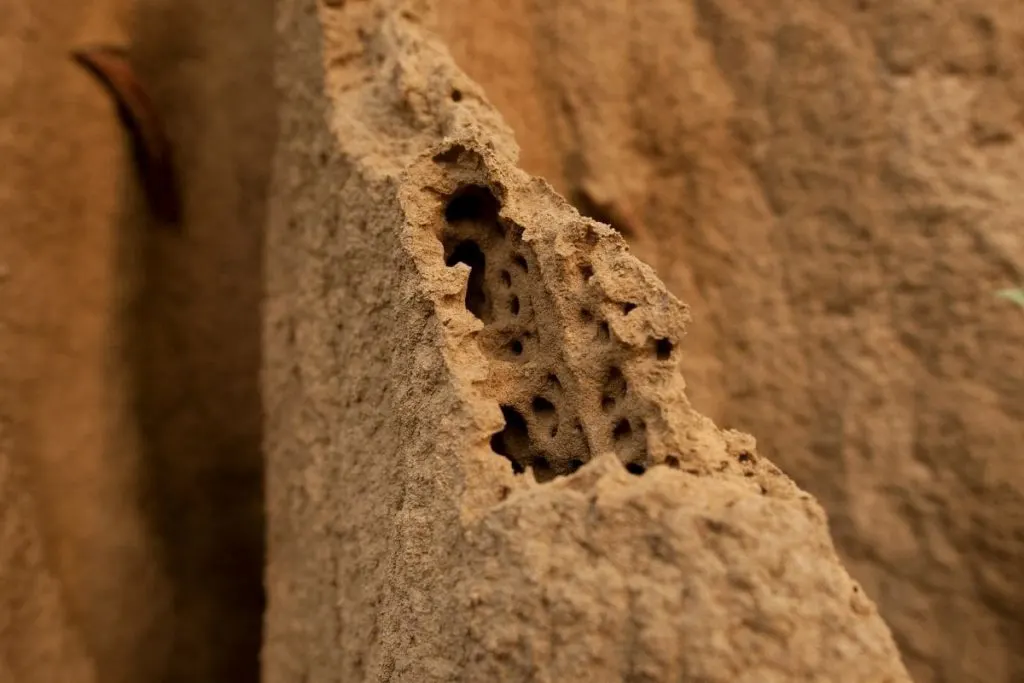
Ants are common in both indoor and outdoor plants. There are no determinants that say that they will attack one or another plant more and more often.
If you live near a forest, if you have a garden or a yard, and almost every house does, a small hole for one ant to pass through is enough to soon have a whole colony. As soon as you notice one, react and it will not have problems with the entire colony.
How Do I Kill The Ants Without Harming My Plant?
Read the instructions for use, use the suggested proportions, and do not do anything on your own and there will be no problems.
Final Thoughts On How To Stop Ants Nesting In Plant Pots
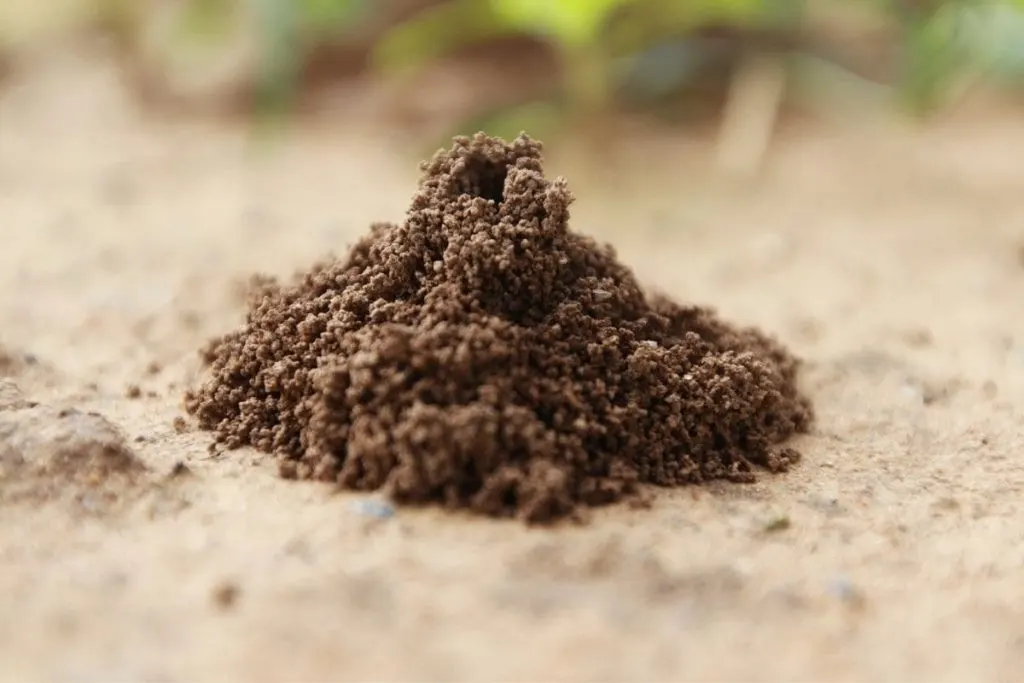
15 minutes ago, you might not have known a single reliable reason to prevent ants in your pots. Now, after 15 minutes you know as many as 17 ways how to stop ants nesting in plant pots.
Some of these ways will get rid of plants from your pot for good, some may not get rid of them for good, but you will have safe solutions. Of course, there is also the doubt about whether to do more harm or benefit to your plant.
But you have learned all that above and now you are sure which method to use according to the damage caused to your plant. Don’t be afraid to take control and responsibility now because you are more than ready.
See you soon with more similar articles on our website. Thank you for your trust and visit!

